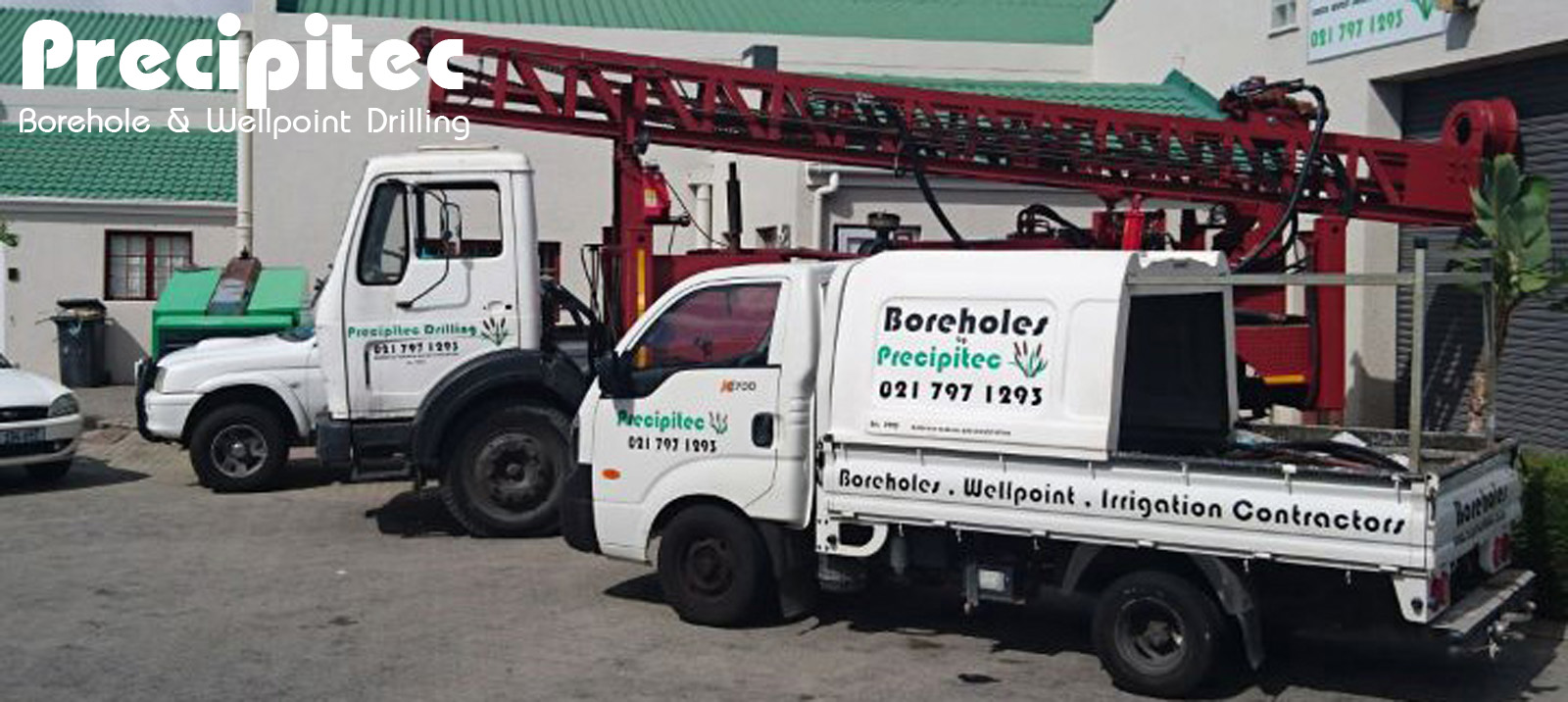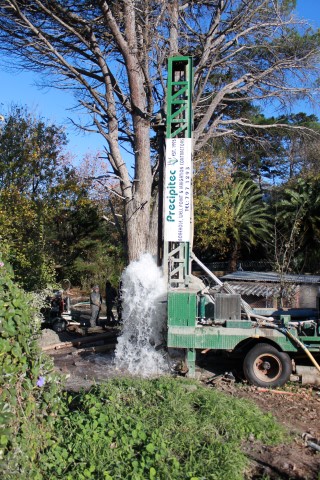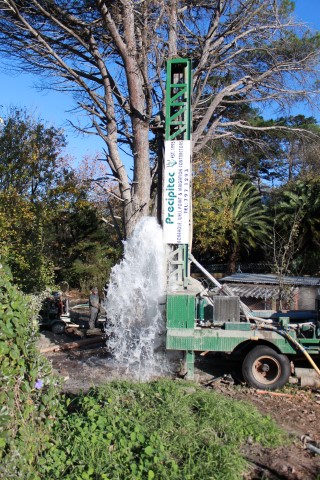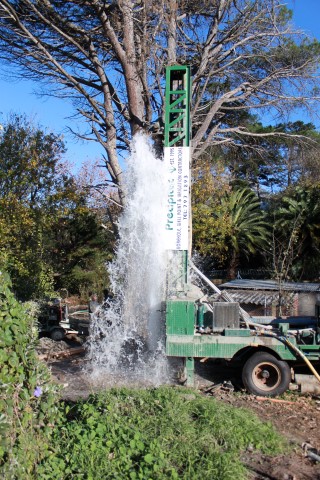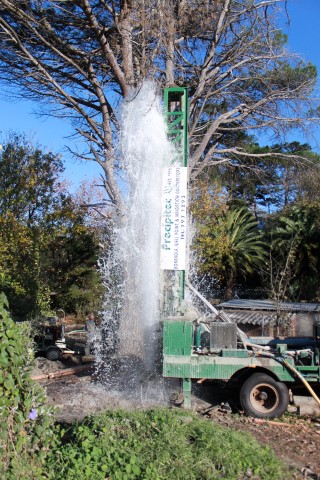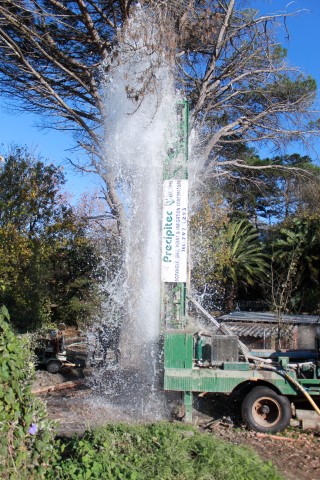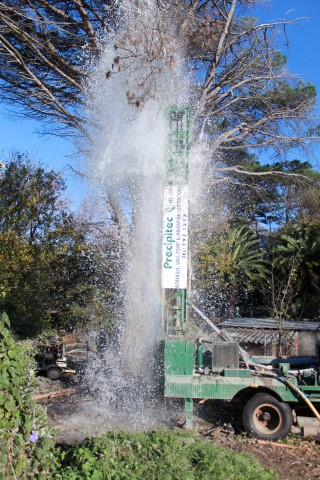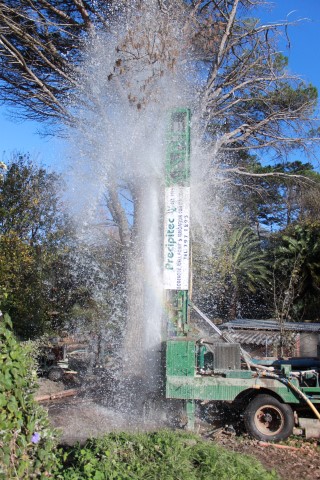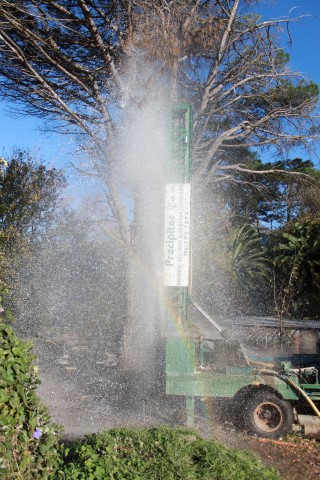Boreholes:
Cape Town is notorious for having difficult geological drilling conditions often necessitating combinations of both drilling techniques on a single hole. This also involves dual casing of many boreholes, with both steel and PVC casing. Although groundwater is plentiful in the Western Cape it does involve more work than traditional methods.
The most common method we employ is mud rotary drilling that involves using a drilling fluid consisting of water and stabilizing additives that are recirculated via mud pit and pumped down the bore to wash the cuttings out of the hole.
Approximately 75 % of the boreholes in Cape Town can be drilled this way due to the fact that Cape Town has a very healthy and sustainable unconfined aquafer which lies in the soft geology above the bed rock, (it is healthy and sustainable due to the fact that it is seasonally recharged by winter rains). This geology is water bearing and varies in permeability with the occurrence of sand, gravel, clay and decomposed granite.
The other 25% of holes are drilled into the bedrock to access the confined aquafer within the rock via geological fissures (cracks) in that rock formation that contain water. (It is a common myth that there are underground "rivers" or "streams" in Cape town that water drillers need to access) Confined aquafer water is contained in a myriad of fractures, fissures and small voids that are generally interconnected over a vast area and once penetrated by drilling allows water to freely flow into a borehole bore.
Borehole Maintenance:
Having a borehole constructed and equipped is a substantial investment and just like other expensive purchases such as motor cars, it will need to be serviced and maintained regularly.
The minimum service interval should be no more than every two years. During a service we extract the submersible pump from the borehole. The pump will then be stripped on site and inspected for wear. The two most common causes of wear in Cape Town boreholes is sand ingress into the bore and accumulation of iron oxide manganese. Sand is often found in seepage water bore holes which are typical in Cape Town and is a normal occurrence; it can cause gradual erosion of the pump impellers. An inspection will show this, and the necessary components are then replaced.
Iron oxide and manganese deposits need to be removed, as they compromise the performance of the pump and can ultimately lead to the pump failing and causing the motor to overload and burn out. The inspection period for boreholes with such mineral content varies but if it is very high an annual inspection will ultimately save you in the long run. At least once every four years the borehole itself should be cleaned and re-developed. This is done after the pump is removed and a high volume high pressure air hose with specialized cleaning nozzle progressively is pushed down the borehole. This cleans the screening in the borehole casing and lifts all the sediment and debris out of the hole.
